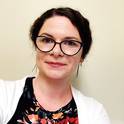Presentation
Educational alliances: Building community in active learning classrooms
University of Washington Teaching and Learning Symposium
(2016)
Abstract
Using the concept of “educational alliances,” the idea that certain types of social interactions lead to greater trust, respect, cooperation and responsibility for learning, an interdisciplinary research team looked at social interactions in the Odegaard Library Active Learning Classrooms (ALCs). Our goal was to better understand the nature of these instructor-student and student-student interactions: how they are facilitated and how they affect the quality and perceptions of student learning experiences.
We conducted our research with four instructors teaching undergraduate courses in the ALCs during Winter Quarter 2015. Courses ranged from 100 – 400 level, ranged in size from 30 – 56 students, and were in the humanities and sciences.
The four participating instructors agreed to share their syllabi and lesson plans, allow classroom observations, and be interviewed by the research team. Students in their courses were invited to complete a questionnaire and participate in a focus group. Instructors demonstrated a variety of active teaching techniques, including cooperative groups, inquiry and problem-based learning, and peer review.
Data from each source were analyzed using dimensions within the “educational alliances” framework: mutual respect, shared responsibility for learning, effective communication, and cooperation. Results suggest that specific instructional practices (such as encouraging students to take ownership of their learning, and designing substantive collaborative activities) had a positive effect on the learning environment in regard to these dimensions. Among other findings, students reported feeling accountable to classmates and instructor, and for learning in class and arriving prepared.
By closely examining these courses, we learned which teaching and learning practices best supported student group work, student participation, student learning outcomes, and supportive learning communities. This poster session will highlight the findings and practices that can be applied to active learning and traditional classrooms alike, and that promote “educational alliances” across disciplines.
Keywords
- active learning
Disciplines
Publication Date
April, 2016
Location
Seattle, WA
Citation Information
Amanda Hornby, Janice Fournier, Marisa Petrich and Louise Richards. "Educational alliances: Building community in active learning classrooms" University of Washington Teaching and Learning Symposium (2016) Available at: http://works.bepress.com/marisa-petrich/3/
